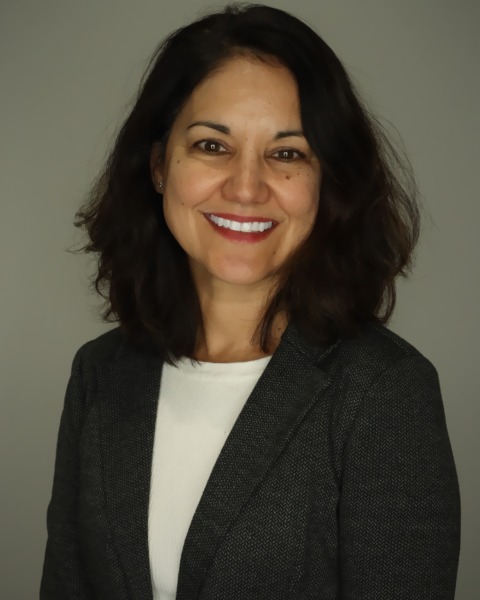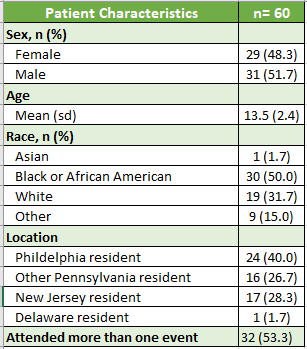Nephrology 5
Session: Nephrology 5
618 - CHOP IT UP: A Kidney Friendly Cooking Camp Program to Promote Patient Empowerment and Peer and Family Engagement in Practicing Healthy Dietary Habits
Sunday, April 27, 2025
8:30am - 10:45am HST
Publication Number: 618.4458
SANDRA AMARAL, CHOP, Wynnewood, PA, United States; Samantha Najmola, Childrens Hospital of Philadelphia, Ridley Park, PA, United States; Jon Savant, Childrens Hospital of Philadelphia, Philadelphia, PA, United States; Elisha Pavlick, Vitaflo, Havertown, PA, United States; Annie Chung, Childrens Hospital of Philadelphia, Philadelphia, PA, United States

Sandra Amaral, MD, MHS (she/her/hers)
Assoc Prof
CHOP
PHILADELPHIA, Pennsylvania, United States
Presenting Author(s)
Background: Children with kidney disease must adapt to a lifestyle of dietary modifications to promote their health and kidney function. Having chronic illness can increase feelings of social isolation and feeling different from peers. Camp programs allow children opportunities to experience social engagement but have not been utilized to target healthy dietary habits for children with chronic kidney disease.
Objective: We initiated the CHOP IT UP Cooking Camp Program in 2015 to provide children with chronic kidney disease an opportunity to gain knowledge about kidney friendly diets, learn culinary skills, foster confidence and provide social peer interactions with other children with kidney disease. Here we present details of the program and feedback from participants and their caregivers.
Design/Methods: Annually from 2015-2019 and 2022-2024, we have hosted a week-long cooking camp summer program for children ages 8-18 with kidney disease to learn to how to prepare recipes that are lower in sodium, phosphorus and potassium. Participants work directly with a professional chef and learn hands-on culinary skills, such as safe knife practices. In addition, one to two child-caregiver workshops are held each year on a weekend day in which children and their caregivers prepare kidney-friendly recipes together. For both camp and workshops, the participants eat the meals they prepared for lunch each day. At the end of each program, children and caregivers complete surveys focusing on their experiences with camp and asking for insight on their experiences of participation.
This programming has been supported by a variety of charitable funding sources over time, but primarily from internal institutional grants to promote community engagement.
Results: 60 unique children have participated to date, with 32 participating more than once. 34 unique caregivers have participated with 10 participating more than once. 100% of children would attend again. Participant demographics are shown in Table 1. Salient quotes from caregivers and campers are shown in Tables 2 and 3, respectively. Key themes of camp benefits endorsed by campers and their caregivers include: increased knowledge about the renal diet, supportive learning environment, increased confidence, and less peer isolation.
Conclusion(s): This cooking camp program for children with kidney disease has shown promise in educating children about kidney friendly diets, but more importantly, has provided an opportunity to reduce social isolation and help children feel “special” instead of “different.” Future studies will consider how to measure actual changes in lifestyle behavior.
Table 1. Cooking Camp Participant Demographics.

Table 2. Caregiver Survey Feedback.
.png)
Table 3. Camper Survey Feedback.
.png)

